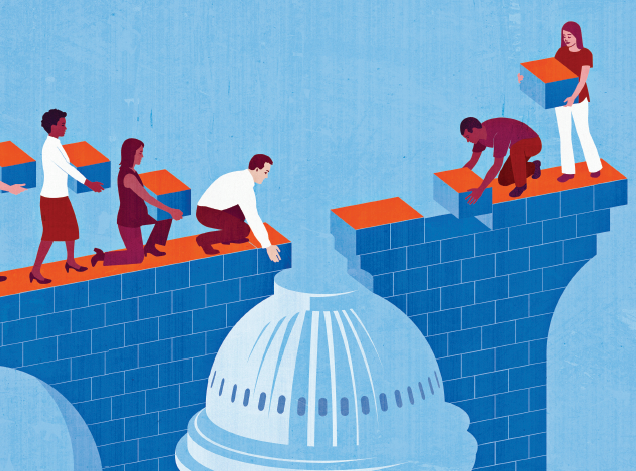After his election as the incoming governor of Virginia, Ralph Northam organized a meeting of policy councils to speak to the major issues facing the Commonwealth. The group that day included students from the Batten School — not as observers, but as participants.
“We were talking with government agencies, lobby groups or advocacy groups… basically everybody,” says Andrew Pennock, public policy professor at the Frank Batten School of Leadership and Public Policy. “When the Northam administration held these councils, they said, ‘What do we need to know about your issue area? Where do we need to be thinking about making policy?’ The students were in the room and in that conversation with all of the policymakers in the state that matter. That was really an incredible experience.”
The students earned their way into those meetings as part of a one-semester project through Batten’s new Public Policy Lab. The lab allows Batten faculty members to design hands-on public policy research projects at a level of engagement below that of the yearlong projects that form the capstone for Masters candidates at Batten. In this case, the project was organized by Pennock and Raymond Scheppach. The effort had to begin long before the election.
“We have already done two full-day retreats for the last two governors, one Republican, one Democrat,” says Scheppach, public policy professor at the Batten School.
Virginia law allows only one term for governors, so at a time when most governors in other states are gearing up for reelection, those retreats helped each governor’s senior staff plan for finishing strong. The goodwill built up in those efforts, Scheppach says, allowed them to develop a package of projects for the 2017 election.
First, two Batten students helped organize the debate last October between Northam and his Republican opponent, Ed Gillespie. Then, Scheppach and Pennock reached out to each candidate’s campaigns for a list of policy issues they wanted to pursue once the election was over.
“Andy and I had good relationships with a lot of these people,” Scheppach says. “So we had the credibility that allowed us to guide the students and help them make a real contribution.” The idea was to have students produce policy background briefs for key issues to help the winning campaign prepare for the transition to governing.
